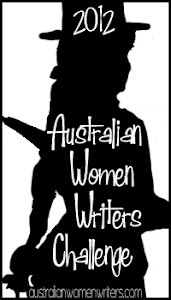The Finkler Question – part one – why I hated the Man Booker 2010 prize winner
1 Feb 2011
It is not often I do not finish a book that I commence. Once I start, I am committed to finishing. I have finished one or two books I really didn’t enjoy. I have finished some of the most difficult books in the English language or in translation to English. War and Peace, Ulysses, Infinite Jest, Fox in Sox, to name but a few. I mean I’ve finished Mason & Dixon by Thomas Pynchon. I have finished books that are emotionally difficult to read. Books like What is the What, The Book Thief, Outside Over There by Sendak. Late last year, I read Room by Emma Donoghue (incidentally also shortlisted for the 2010 Booker). That’s a difficult book, at an emotional level, yet I finished it in two days. I have rarely started a book and abandoned it. Dead Air by Iain Banks, looms as one I can immediately recall not finishing.
Today though, my list of unfinished books includes The Finkler Question. The 2010 winner of the Man Booker Prize. I tried, really tried to finish it. I put it down. I read other things. I came back. Then I thought maybe I need to give it a few more chapters, so I ploughed through for another hour. Perhaps, I thought, the denouement is a creeping one? I kept at it. For six long weeks. And today, while giving this book one last chance, I read this.
“Strange, how well you can come to feel you know a person, Treslove thought, from a name, a word, and a few photographs of his penis.
But then Treslove could afford to be generous: he had what Alvin Poliakov, epispasmist, had wanted all his life – a foreskin.” (p. 220)
That was it. I could read no more. It had reached farce in my view. I had had enough. I just didn’t care. I didn’t care about Treslove and his desire to be Jewish or not be Jewish, or whatever the hell he was trying to be. I didn’t care about his search for happiness or identity. I didn’t care about the epispasmist, that was for sure. I didn’t care much for any of the other characters either.
I was annoyed by the inconsistencies in the text. I was tired of verbless sentences. I was sick of looking up words. I was tired of the meta-narrative crowding out the actual, albeit tissue paper-thin, narrative. Initially, when I first wanted to stop reading it, I wondered if this was the literary equivalent, for me, of Wim Wender’s film Wings of Desire. I tried to like that film. Everyone else liked it. I just didn’t get it. Angels floating over Berlin. The voice over repeating over and over;
Als das Kind Kind war,
wußte es nicht, daß es Kind war.
Wings of Desire made no sense to me at all. I had tried so hard to like it, but I just couldn’t. It still sometimes pervades my mind. It is still in there, percolating away, and I still don’t get it. I wondered, early on in the six weeks, if The Finkler Question was the same. But it won the Booker! I told myself. It must be me. It must be Wings of Desire in a book! It has the same endless quest for happiness, same repetitions.
The Finkler Question, is a book I am reading for bookclub. While our bookclub includes food, drink and the usual gossip, it is also full of very serious readers. Serious as in, properly prepared notes for the presenters. I precipitated a heated debate in my first ever meeting, by announcing that I had enjoyed Atomised by Michel Houellebecq. There was almost a riot. In the same meeting, I vetoed any Roth books – one of my other unfinished books is American Pastoral* – from the list for 2011. I was about to do myself out of a bookclub. Fortunately I managed to recover enough for them to let me return.
I felt compelled to finish The Finkler Question, for bookclub. Perhaps I thought I needed to demonstrate my seriousness. Demonstrate that I could read I book I didn’t like and talk about it. Well, I can talk about, but I can’t finish reading it.
To be continued … after bookclub …
* Yes, I too, have detected a theme. More on that later.



Ultimate book Q&A … on it goes
Jul 23, 2013 @ 18:17:52
[…] am very tempted to say The Finkler Question, but I am sure that’s not the intent of the […]
Jan 29, 2012 @ 11:28:09
Sounds like hard work to me. Thanks for the unrecommendation! Nothing worse than plowing through a book for no reward. Not sure that a foreskin reference would do it for me either. Thanks for joining the Weekend Rewind x
Sep 26, 2011 @ 22:36:39
Thank you for writing this. I always feel SO guilty and beat up whenever I don’t finish a bookclub book. But, I’ve decided that there are TOO MANY wonderful books to read, to waste time on something that doesn’t grab within the first couple of chapters.
Jul 31, 2011 @ 14:51:33
I am 72% through (on my Kindle, so can be precise!) on a Cycladic island half way (or maybe slightly more) to Paradise – with Finkler for company? Must be mad! Now I know there is no denouement, it just ‘ends’ it will take some perseverance to carry on – ah, but the Book Club and the shame …… And there are so many other titles waiting patiently on my Kindle and so many more just waiting to join them …. And I am not getting any younger! The Mann Booker has a lot to answer for!
Jul 18, 2011 @ 10:04:57
I am so glad I have found someone who also found “The Finkler Question” virtually unreadable. I read half because I also feel I should always finish a book. This book is just a mediocre book, a poorly written not-story about two fairly unpleasant men and one reasonably decent one. But how the hell did it win the Mann Booker Prize?
May 23, 2011 @ 23:30:32
How interesting. You have finished Ulysses so you’re doing better than me. Disappointed in many ways as Jacobsen is hilarious when interviewed. One to cross off the list!
Mar 08, 2011 @ 21:28:16
meta-narrative? haven’t a clue what that means! my biggest hurdle with getting into Finkler was the rolling repetitive self-referential nature of the story. attempting to skim ahead didn’t help, either, as i worried i might miss a detail that would open it up for me.
and then it happened, it opened up to me, and as slow as opened, was as fast as Jacobsen slammed it shut in my face. after all the hard effort to dig a fingerhold in the story, the ending … just … ended.
there are books i have felt less for, The Corrections being pretty sharp in my recent memory, but it was the lack of reward for the hard work done that will stay with me about The Finkler Question.
i can’t hate it, and i will be thinking about it, but i’m not sure i will thank it, either.
Feb 02, 2011 @ 07:30:06
I no longer have any question about Finkler. I’m not going to read it. Thank you!
And I decided that 2010 was the year I came to grips with Roth. OK, I only read two (The Human Stain & Portnoy’s Complaint), but I am now at grips. Never again. I think I am across his themes: men, women, Jewishness, penises.
Hmmm, seems he has a lot in common with Finkler ;)
Tweets that mention The Finkler Question – part one – why I hated the Man Booker 2010 prize winner | StellaOrbit's Blog -- Topsy.com
Feb 01, 2011 @ 22:06:01
[…] This post was mentioned on Twitter by Louise Bassett, Louise Bassett. Louise Bassett said: I cannot finish The Finkler Question. I tried – latest blog post http://wp.me/pPZpv-d4 @CateP36 @babyexpat @booktopia @mamabook […]
Feb 01, 2011 @ 21:23:33
I know. Someone just had to write it down. Let us all off the hook!
I even poured coffee on my copy – didn’t improve it at all.
Feb 01, 2011 @ 21:18:26
I feel sooooo much better that I couldn’t get into it, though you tried harder and for longer than I did. I am determined that one day, with a little more patience, determination and vodka at hand, that I will revisit Finkler.
Possibly with a box of matches…